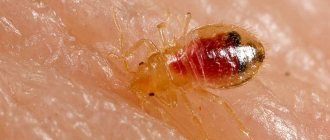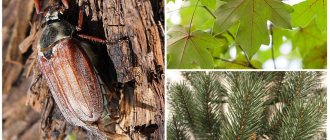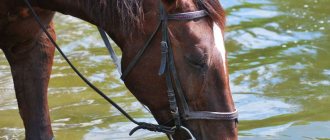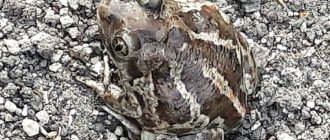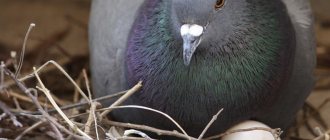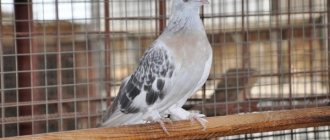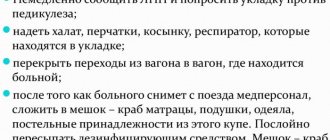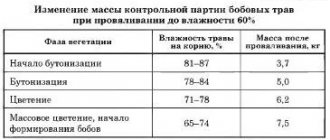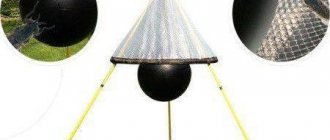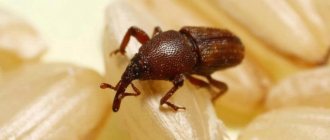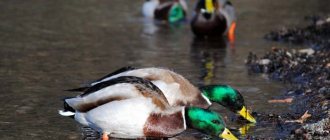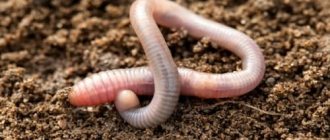Feeding purebred birds requires not only the preparation of the correct diet, but also careful selection of products. What does a domestic pigeon eat? The answer to this question is very multifaceted. Street birds can eat almost any food, while purebred birds require a special diet.
This article provides a list of products that will help you determine what to feed your pigeon at home. You will learn the basic nuances of their nutrition, as well as the peculiarities of feeding birds with various grain crops.
What to feed a pigeon at home
Saturated with vitamins, beneficial macro and microelements, a balanced menu can prolong the life of any bird. Street pigeons, due to their promiscuity caused by hunger, are able to live only 2-3 years, while their domesticated relatives, with a regulated menu, live up to 10 years.
Thanks to a proper diet, the dove develops good health and immunity. She quickly gains weight and does not suffer from diseases of the reproductive organs, which has a good effect on egg laying.
To do this, every breeder needs to know what to feed a pigeon at home and adhere to some feeding rules:
- Regardless of the type of bird, it is recommended to constantly use feed mixtures with the same ingredients.
- The daily requirement for adults is 35-40 grams of balanced food.
- Undereating or overeating should not be tolerated. Both of these spoil the health of the bird and reduce the performance of the immune system. The bird does not gain weight well or, conversely, suffers from excess weight.
- The basis of good food is cereal with the addition of vitamin and amino acid complexes.
- When choosing food products for pet birds, it is recommended to take into account the age, type of bird, and time of year.
- In summer, feeding is carried out three times a day. In winter, twice is enough.
- When breeding a large number of pets, it is better to use ready-made industrial food containing the required elements.
- All feed components must be high quality, well dried and clean.
The basis of nutrition for adult birds is made up of all kinds of grains and legumes, root vegetables, meadow grasses, nettles, spinach, mineral supplements in the form of eggshells, fine-grained sand, fish oil and much more. All this can be replaced with granulated food, which veterinarians recommend using when breeding meat breeds of pigeons.
Note. If the bird has recently been ill or is going through a period of adaptation, molting, mating, then its food must be diluted with ingredients high in fat (raw sunflower seeds, rapeseed, flax, cake, etc.).
Winter diet
During the cold season, pigeons require special nutrition. The amount of protein is reduced in order to reduce sexual activity and prevent possible egg laying. To achieve this, legumes are almost completely removed from the menu. The emphasis is on barley and oats.
Food in the cold season
A mixture made from cereals and boiled salted potatoes allows you to provide the necessary caloric intake.
In cold weather, domesticated birds are fed according to the following scheme:
- 40% each of oats and barley;
- 10% each of crushed corn and lentils.
Flax seeds for pigeons
Separately add flax and rapeseed seeds (3-4 grams for each individual). They are necessary to maintain the elasticity and softness of the plumage.
Is it possible to feed pigeons with millet: the pros and cons of this type of feeding
Millet is the main component used in poultry feed. Is it possible to feed pigeons millet? Of course, this grain crop contains the amount of minerals, fats, carbohydrates, and vitamins required for the development and growth of poultry. The only caveat is that the cereal should be cooked, not raw (thoroughly washed, boiled). Millet porridge is often used to feed short-billed pigeons.
Important: Before cooking, you need to thoroughly sift the cereal to prevent the development of infectious intestinal diseases caused by parasites.
Oats
This crop of the cereal family is rich in complex carbohydrates, protein, and fiber. Cereals contain many amino acids, calcium, sodium, magnesium, and potassium. But pigeons should not be given whole grains, but they eat crushed grains with pleasure. If the owner complies with feeding standards, then the bird’s body is saturated with the necessary nutrients. This product helps to quickly restore plumage after molting.
If chicks are fed crushed oats as part of grain mixtures, then they develop a strong backbone. Adults eat cereals at any time of the year. Sprouted grains compensate for the lack of all necessary substances in winter.
It is important to control the amount of oats, because if consumed in excess, the health of pigeons suffers. They gain excess weight, the functioning of the musculoskeletal system is disrupted, egg production decreases, and the risk of infections increases.
Before serving, the films from oats must be removed, as they are difficult to digest. Also, the cereal should be soaked in water or steamed for 24 hours. Oats are often mixed with other cereals, herbs, vegetables, and animal feed.
Month-old chicks are fed peeled, crushed oats. They also eat oatmeal. The amount of oats in their diet should not exceed 20%, otherwise the risk of stomach blockage increases.
Is it possible to feed pigeons bread?
Wondering what is the best way to feed pigeons on the street, peace-loving bird lovers come to the conclusion that a baked product is perfect for these purposes. But this is far from true. Fresh rolls, loaves of bread, pies, loaves and other products, the preparation of which cannot be imagined without yeast and rye starch, are simply contraindicated for birds.
As a result of eating such food, a fermentation process occurs in the bird’s stomach. Because of this, digestion worsens and food is not absorbed. Therefore, the answer to the question whether it is possible to feed pigeons with bread is a categorical no. It is better to replace only the baked treat with bread crumbs or crackers.
What do chicks eat?
As a rule, pigeons feed their chicks on their own.
During the incubation period, “milk” is formed in the crop of females and males, which serves as food for the offspring that are born. “Milk” is a mixture of curdled liquid produced in the crop and semi-digested food regurgitated from the stomach. During the first month of life, parents feed the young. Then the chicks are separated from the female. Then the worries about feeding the pigeons fall on the owner of the birds:
It is recommended to give crushed grain to young animals. As the pet grows, the size of the fractions increases. Be sure to include mineral and vitamin supplements in your diet. Feeding formulas must contain all the necessary nutrients. It is recommended to feed food rich in protein
This element helps in the formation of healthy and beautiful plumage. It is important to ensure that the chicks have clean, fresh water in their drinking bowl.
Is it possible to feed pigeons pearl barley?
Grain is the basis of the poultry menu. It is recommended to use millet or barley as food, because the diet of pigeons in natural conditions often consists of grain crops and plant elements (berries, grass). It is not necessary to cook pearl barley porridge; this cereal is given raw. For young animals, it is better to use boiled pearl barley.
Is it possible to feed pigeons pearl barley? Of course, the main thing is not to overdo it and not to partake in such food, which, if consumed regularly, causes blockage of the esophagus.
About
Feed requirements and their features
Cereals used to feed pigeons must be of high quality.
- Well dried.
- Clean, free of dirt and impurities.
- No signs of fungus or mold.
These feeds must be stored in a room that will ensure the preservation of these quality indicators.
Legumes are a necessary component of the diet. They contain a large amount of B vitamins, as well as minerals: phosphorus, sulfur and calcium.
Oil crops. They should not be abused, but they should be present in the diet in small quantities during stressful situations: molting, mating, illness.
The percentage of feed components varies not only with the time of year, but also with the periods of their life cycle. This relationship can be seen in the table below.
Percentage of feed components
What to feed pigeons outdoors in winter
During the cold season, it is difficult for wild birds to find food. The winter menu often includes rowan berries and complementary foods that people give them. In order for birds to remain healthy, their bodies must receive vital microelements and vitamins.
Power Technology
Proper winter nutrition will help birds maintain energy and warmth. Hungry pigeons often die due to exhaustion or frostbite. To avoid this, you should know what you can feed pigeons outside in winter. The following products are used as feed:
- raw pumpkin and sunflower seeds;
- pieces of frozen butter or raw lard;
- soft oat flakes;
- crumbs, crackers;
- millet, crushed corn, flaxseeds;
- boiled wheat or rice;
- young sprouts of cereals;
- chopped beans, beans, peas;
- dry greens.
But it is not advisable to give toasted seeds and dense oat flakes. A similar menu should be followed by breeders who do not know what to feed pigeons in winter at home.
Barley
One of the most important products in the diet of pigeons is barley. 100 g of cereal contains 10 g of protein, 56 g of carbohydrates, 2.4 g of fat, a lot of fiber and water. It is rich in amino acids, calcium, phosphorus. For this reason, it is possible and necessary to feed pigeons with barley. But moderation should be observed. With excessive consumption of cereals, the egg production of females decreases. Ornithologists advise combining barley with other grains (for example, wheat, oats). Cereals should be excluded from the menu during the molting period.
Chicks eat barley from an early age. But before eating, the grains must be peeled and slightly crushed. If the husk is not removed, it can cause a blockage in the stomach and lead to death.
An excellent option for feeding birds is sprouted barley. Such food can replace greens in late autumn and winter.
Technique for preparing sprouted barley:
- Sprinkle an old baking sheet with a layer (no more than 1 cm thick) of grain.
- The product is poured with water to cover it by about 1.5 cm.
- The cereal is left for 10–12 hours at room temperature.
- The water that is not absorbed is poured out, and then the barley is again filled with clean liquid.
- On the second day, the procedure is repeated, but the amount of water decreases (it only covers the bottom of the pan).
- The container is placed near a heat source, the temperature should be from 22°C, covered with damp gauze, which must be regularly moistened.
Feeding pigeons during the breeding season
At this time, females and males begin to become active, lead a restless lifestyle, fly a lot, so their diet should be regular, low-fat, saturated, and rich in nutrients.
During breeding, the daily food intake increases. Depending on the breed, a dove or dove can eat 50 to 60 grams of the mixture per day. The viability of the chicks will depend on how high-quality food was used to feed the pigeons during the breeding season.
About
Buckwheat
Beginning breeders are interested in whether pigeons can eat buckwheat. It can be included in the diet, but in moderation. The content of this cereal should not exceed 5% of the daily value.
In spring and summer, pigeons can eat more buckwheat than usual. Then the amount of cereal increases to almost 50% of the daily diet.
Pigeons eat buckwheat in any form. Before use, dry cereal is ground using a coffee grinder or blender. Birds love to eat buckwheat porridge; you can also steam the cereal and mix it with bran.
In spring, you can give pigeons unpeeled buckwheat. Its shell contains many useful substances. However, the buckwheat pericarp is tough, which means there is a risk that it will scratch the roof of your mouth. Therefore, it is better to clean the cereal.
